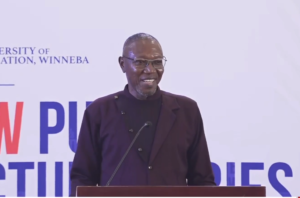Free SHS needs improvement – Dr. Apaak

Education Minister-Designate and Member of Parliament for Builsa South, Clement Abas Apaak, has acknowledged the need for improvements in the implementation of the Free Senior High School (Free SHS) policy.
Speaking during his vetting before Parliament on Tuesday, February 25, Dr. Apaak emphasized the importance of reviewing the policy to address its existing challenges.
“The Free SHS policy is a good initiative,” he stated. “However, the challenge lies in its implementation. That is why we [NDC] have spoken about improving and sustaining it, which means reviewing certain aspects to ensure maximum benefits.”
Dr. Apaak identified key issues affecting Free SHS, including accommodation shortages, which led to the introduction of the double-track system, now referred to as the “transitional system.” He also highlighted concerns about inadequate feeding provisions, where students have sometimes been served meals made from the same staple food for an entire week.
Another major challenge he pointed out was the erratic academic calendar, which often forces students to leave school midway through a term due to scheduling inconsistencies. He stressed the need for a more stable structure to enhance learning outcomes.
Regarding feeding arrangements, Dr. Apaak explained that the current government intervention is temporary, as a long-term funding plan will be determined once the government presents its budget.
“For now, resources have been provided to institutions to procure food and feed students, but a long-term solution is needed,” he said.
He further revealed that Ghana currently has 709 senior high schools and 241 Technical and Vocational Education and Training (TVET) institutions, making a total of approximately 900 schools. Out of these, around 413 were affected by the double-track system before its transition to the new structure.
He reiterated the need for a comprehensive review of the Free SHS policy’s implementation to ensure sustainability and improvement.
“We need to take another look at how we implement the policy so that we can address these challenges and maximize the benefits already being derived from the program,” he concluded.






